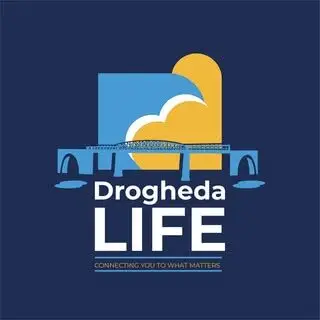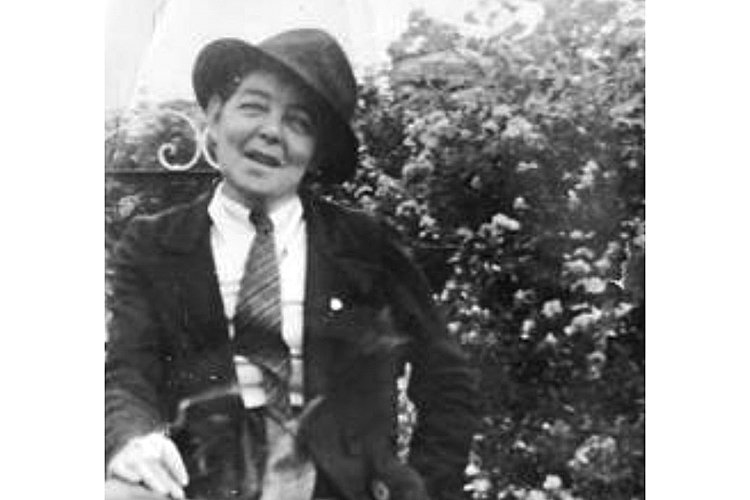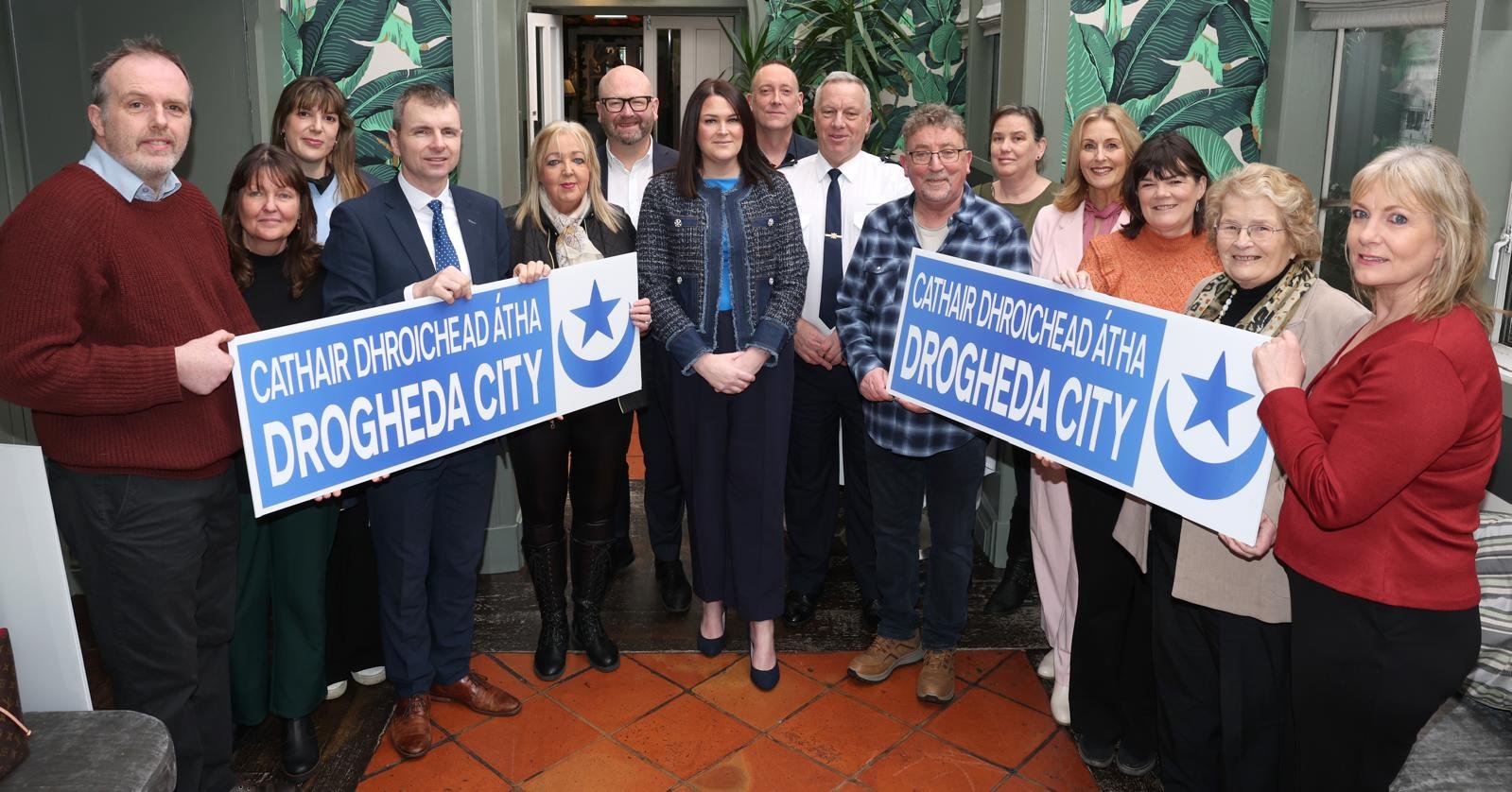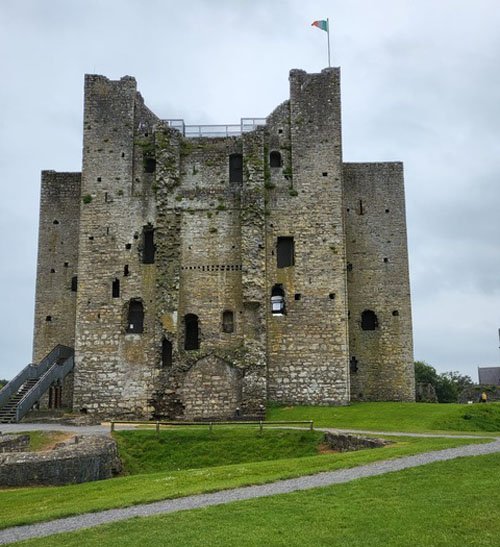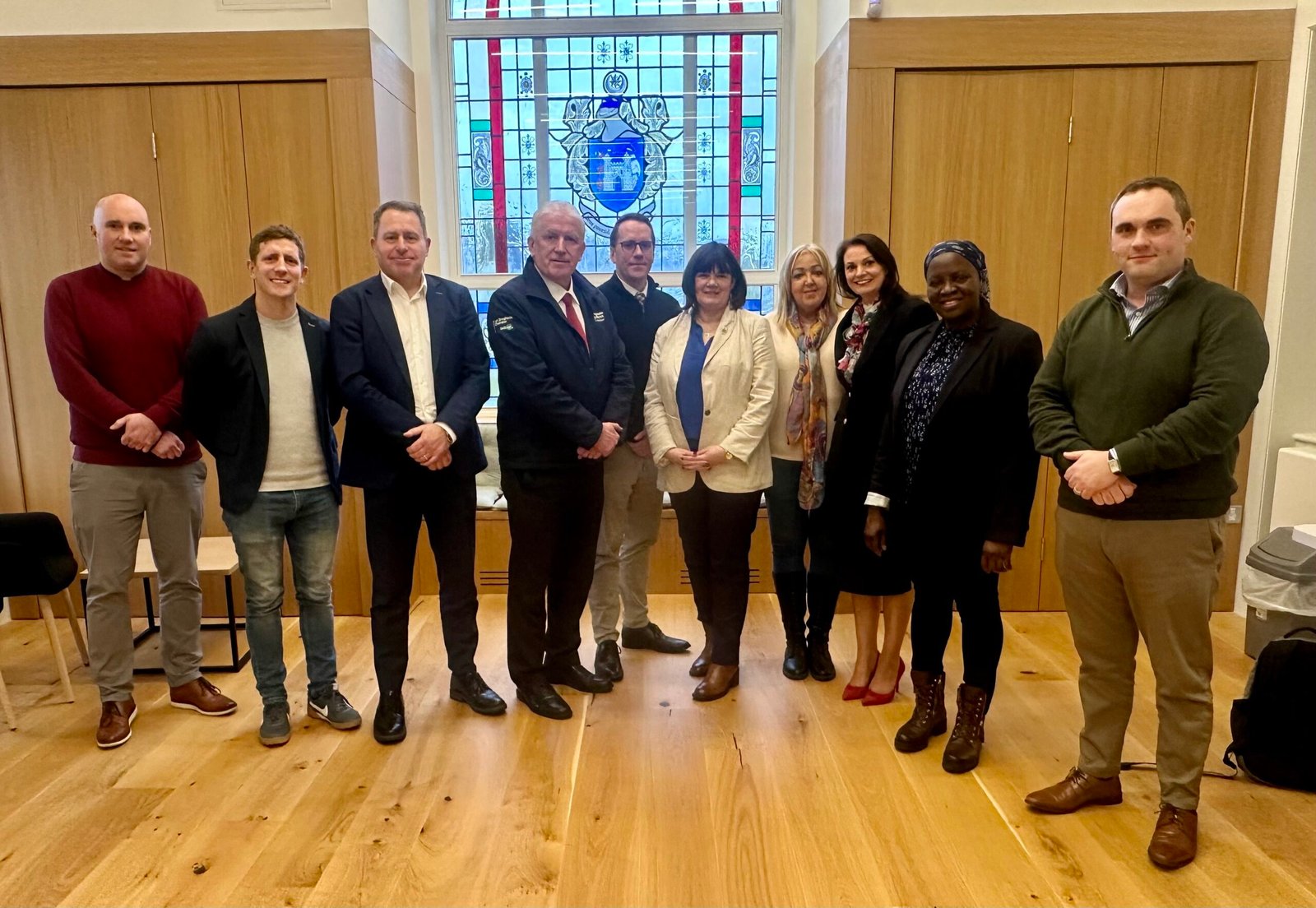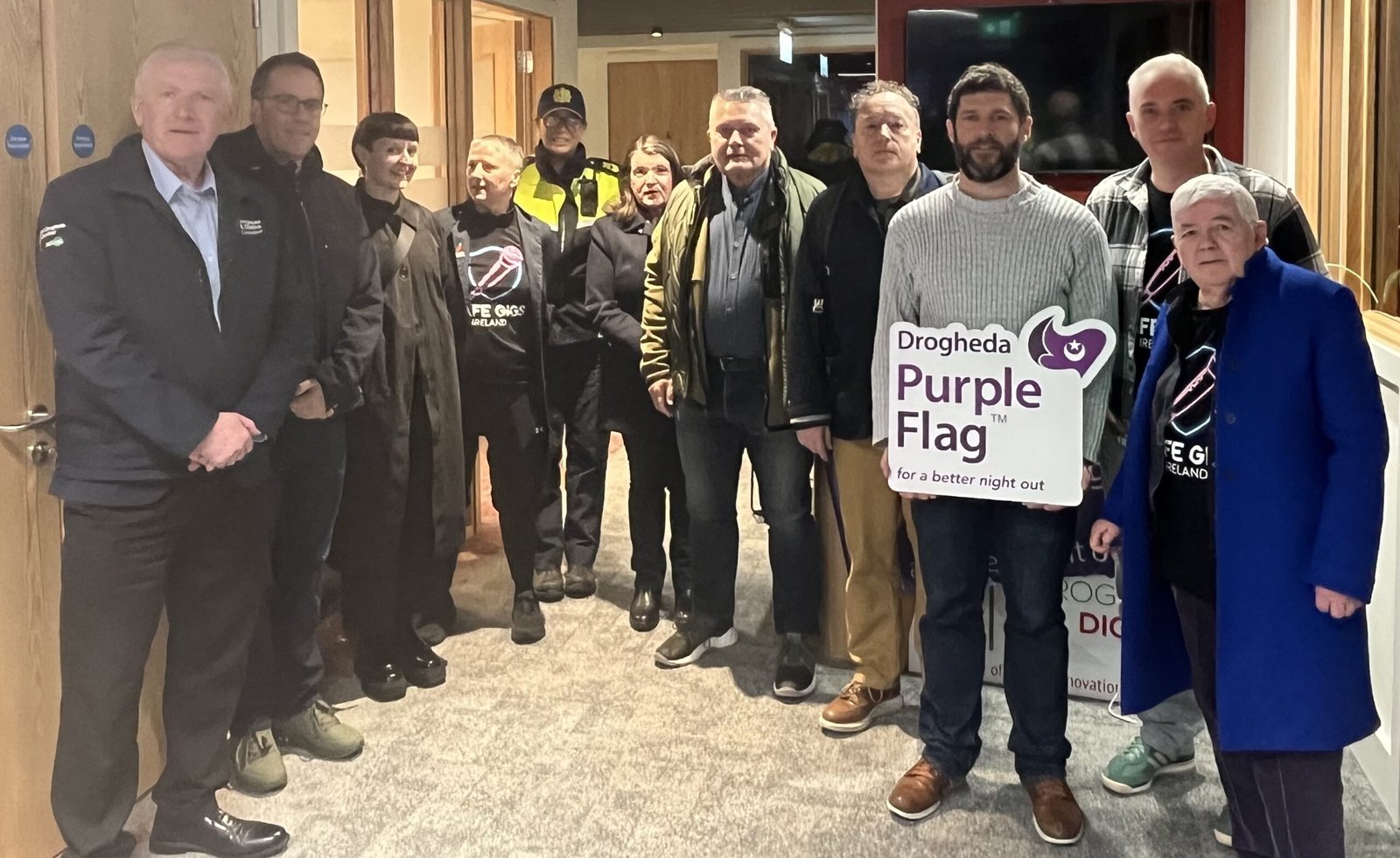By Paul Murphy
Any illusion that women of the Irish revolutionary period were “shrinking violets”, capable only of making the sandwiches and pouring the tea was quickly dispelled at the recent conference on the Civil War.
They were bomb makers, guns and ammunition carriers, and covert despatch carriers, playing roles that were the equal of male revolutionaries, historian Sean Collins told the conference held at St Peter’s Church of Ireland Hall.
Recalling the Kelly family from Grangebellew who had been very active during the War for Independence and the Civil War, he said that the first time he had heard of Brigid Kelly was when she was resident in St Mary’s Home on Dublin Road in Drogheda. Jim McCann had just recorded the song “Grace”, with its connection to Joseph Mary Plunkett and had come to St Mary’s to talk to Brigid who had shared a cell with Grace Gifford.
Sean Collins said that he had found that Brigid had written a memoir of her time in the War for Independence. Her memories were written into a writing pad in 1970 and he hadn’t edited it in any way.
She opened by writing “A space of 56 years of service with the Irish Volunteers who were formed in 1914, the first step for this generation in the fight for Irish freedom. During those 56 years what blood has been spilled, what tears were shed, what homes were left lonely.
“No need to ask who was the cause of all the suffering – England, the age-long enemy of Ireland for generations of Irish people have suffered at her hands. Her last act was to create a civil war. Her aim was to divide and conquer. She has not been successful as far as 26 of our counties are concerned. We have fought a long battle and now we will leave it to the present generation of youth to continue the fight and win back our six counties.”
“The old soldiers, men and women, of 1914 are passing away”.
Brigid’s brothers, Jemmy and Tommy, were members of the Irish Volunteers. “Mother and myself would wait for their return from meetings. Supper over, the four of us would sit around the fire and Jem would read for hours from the paper ‘Irish Freedom’ edited by Sean McDermott who was executed in 1916. I took part in all their preparations for the Rising, even to the making of the ammunition. I delivered a despatch to Jemmy at work on Holy Thursday that the Rising would take place on Easter Sunday. I took charge of rifles etc on Saturday night and the boys went to Confession to help them prepare for Sunday morning when they started out for Dublin.”
They never got there because when they got to Slane they were told the Rising had been called off. They were arrested on 4th May 1916 and taken to Richmond Barracks, Dublin and from there to Wormwood Scrubs London and onward to Frongoch Camp.
Barmeath
Brigid had said that her brothers, having heard the Rising had gone ahead, went to Barmeath Tower and locked themselves in “to wait for the Brits to come and get them”. They were eventually arrested and Brigid wrote how, when the Volunteers were taken to Dublin, they were booed by the people on the streets.
She said that in 1919 and 1920 her home was continuously raided by RIC, military and Black and Tans. Indeed, due to threats from the Tans the family often found it necessary to sleep out in the fields. She and her mother feared the Tans would set the house on fire.
In her time in Cumann na mBan Brigid secreted mail and she also got six tins of petrol which were used in the burning of Clogherhead Coastguard station. One night in 1921 they burned all the revenue offices up and down the coast. She said her brothers were taken to Ballykinlar Camp where they were “very poorly treated” and were detained there until the Truce was called.
The shelling of Millmount
She said that when Millmount was shelled the IRA retreated into the countryside. She was still in charge of despatches and was in touch with several columns in the district. After the fall of Millmount she carried 22 pounds of “cheddar”, the code word for explosives, from Larry Walsh in Duleek Street to Joe Higgins at Tullyesker and she was also responsible for getting a message to Frank Aiken’s forces who were coming South.
“Shortly after the Millmount shelling two members of the Connaught Rangers, Tommy Murray and John Fitzpatrick, came to us after doing prison in India and were released at the Treaty and then joined the Free State Army. They soon found they were fighting against the republicans. They deserted and joined the column. They remained with us in Grangebellew for some months. Then Thomas Murray and John McNulty from Duleek went North on business and were arrested by Free State at Hackballscross and taken into Dundalk Gaol and executed. So after fighting for Ireland in India and doing prison there Thomas Murray was to come home to die at the hands of an Irish firing squad”.
James Woods, a republican from Navan, came to the Kelly home in Grangebellew. The forces raised the Kelly house and also the Butterly house in the hunt for Woods. On one occasion he was shot as he was escaping. She crossed the fields to him and found that he was covered in blood. She dressed his wounds but knew he was a hospital case and sent for Dr Domegan but he was away from home so she sent for Fr Rogers and he had him anointed. At 12 o’clock they had the doctor put him in his car and took him to Dundalk Hospital where he was operated on. He was sprung from the hospital but was killed in the attempt.
Free State forces
In another episode, Brigid went by train to Dundalk to collect some ammunition. The Free State forces raided the train but just before they came to their carriage they said “We’re looking for Miss Kelly” and she said “I knew my number was up because of the guns and bombs I was carrying”.
Suddenly, a lady on the train stood up and said “I’m Miss Kelly” and the soldiers took that woman off the train, leaving Brigid behind. Later, Brigid Kelly was appointed OC Brigade Area comprising Louth and Meath. She visited units in Drogheda and Navan but on 14th January 1923 she was arrested but was released and she headed back to Drogheda.
One morning there was a knock at her door and when she opened it, she found that the house was surrounded by Free State troops and a lorry at the gate had a Lewis gun pointed straight into the kitchen.
“I asked was this another raid and the officer said ‘no, we want you this time’. I never thought I was such a danger to the State! She was taken to West Gate Barracks (Barlow House) where she met another prisoner, Mary French from Smarmore, Ardee. From there they were taken to the railway station by car, escorted by three soldiers and an officer. They were taken to Dublin where another lorry load of soldiers met them to ferry them on to Mountjoy Jail.
Prison life
At the prison their names, ages and addresses were noted and their fingerprints taken. On their way to the women’s wing they passed the graves of Kevin Barry and others. She was taken to her cell, was given a tin mug of tea and two pieces of bread.
“The door banged, the key turned and I was alone. All I could see was four bare walls, the ceiling white, a window that admits neither air nor light, a black iron door, a bed on the floor – this was my home tonight”.
She wrote that she was lonely that night, not for herself but for her parents “but then I knew that Jemmy was still on the run. I did not sleep much and I was glad when the morning came.
The next morning she discovered some of the rules. Breakfast was porridge, tea, bread and butter, then you had to clean out your tin mugs, fold the blankets and walk around. Then they were taken to the yard where they walked around in single file for about an hour.
“I often wondered what Padraig Pearse and his comrades would say when they looked down on that prison yard and see the women of Ireland who helped fight the Black and tans being herded around like a lot of sheep by men in green uniform just because we stood for the Republic”.
After a week in prison Brigid got a letter from Jemmy with very little news but with a warning to save stamps because the mother was collecting every one. “This I knew wasn’t true because they were Free State stamps. On Sunday morning they had to pass barbed wire to get to the church for Mass.
Sean Collins said that in 1982 he interviewed Civil War veteran Harry Fairtlough who said that while in prison the prisoners were told “if you deny the Republic we’ll forgive you your sins – if you don’t you;; go to Hell”. Asked by Collins what reply he made, he said “I told them I’d see them in it!”
Kilmainham Gaol
Brigid Kelly said that they were transferred to Kilmainham Gaol where they were left standing for a long time in bitterly cold weather. She described the interior of the prison and how they were moved to the second floor.
“We were out to break the prison rules and despite the troops and the wardresses we converged on the unoccupied cells and removed furniture and eating utensils and put them into other cells. “Then we had two beds in each and I shared a bed with Mary French. Then we named our cells and we put the “4th Northern” on our cell. When we finished we sang ‘The Soldiers Song’ and said the Rosary and went to bed”.
The next morning they sabotaged the locks on the cell doors and were then able to walk in and out whenever they felt like it.
“I rambled through the cells and met more prisoners from Dundalk and some Dublin girls that I knew. Mary Sweeney and Mrs O’Callaghan from Co Cork were on our landing as was Miss Nora Connolly O’Brien, the daughter of James Connolly. Down in the yard we saw the graves of the Invincibles and further down the graves of the men of 1916.
Hunger strike
“Then we were going for our tea and then we danced in the hall and instead of being in bed at nine we were up until about 11 or 12. Then came the big surprise – all letters and parcels were stopped. Then we went on hunger strike.
“It was hard for the first few days but then we got used to it. On the 19th day the letters and parcels were restored and after 47 years I can still hear the cheers!
“The Dublin girls staged a few plays and concerts every night but we did not forget our Rosary. Mrs Joe Plunkett painted the walls with the Stations of the Cross and the priest came and blessed them. Then on the last day of April we were told we were being moved to the North Dublin Union. Mary McSweeney and Mrs O’Callaghan were on hunger strike and we refused to go in case they would be force feeding them. At 10 that night dozens of men with faces blackened came in and started pulling out the prisoners.
“We kept running round the landings but I was captured about 12 o’clock, pulled down a flight of stairs and on the ground below it a girl was lying with a broken leg screaming in pain. The language of the men was frightening”.
“When they arrived at the Union they were met by soldiers who shouted at them “you’re going now to the poorhouse where you were born and reared”. The papers next morning were enquiring about the “wild screams” coming from Kilmainham in the early morning.
Brigid Kelly said they were not long in the place when they started to dig a tunnel that would take them out onto the railway station. However, they were caught in the act and taken to the top floor of the building.
There was an election around this time and when she looked out the window a man outside held up a copy of the Evening Herald with the headline “Frank Aiken heads the poll in Louth”.
She wrote to her mother telling her not to send any food, just cigarettes and matches. They were on hunger strike and the soldiers would come in with food three times a day but would then carry it away. After 20 days they were released. She went home on the train and Tommy, who was released two days before her, met her at Dunleer railway station.
“I was sick for a long time after release. I took too much food after a 22-day fast. All of the boys from the column came to see me and I was glad to be home again but not sorry for what I had done. “In the following year in the month of November the Free State decided to hand over to the people the remains of 77 prisoners they had executed. Six of them were coming to Dundalk.
Six coffins
“We had three carloads from Grangebellew to Dundalk that morning. As we arrived at the church the six coffins were at the front of the altar, each covered with a tricolour.
“Mass over, we lined up outside for the march to the cemetery. Before we were ready to start a Dundalk girl and myself were called by the OC who told us to fall out near the cemetery and go to a house near the cemetery gates where we would find two parcels in a bed and take them to the mortuary church inside the cemetery.
“Four girls were there, we opened the parcels and each of us took out a revolver. We waited inside the gate and as the six coffins passed”.
They handed the guns to six men who fired three volleys. Then the Free State troops who were stationed in the cemetery opened fire on the crowd “and we all had to get down flat for safety”. One man was shot and he died at the Louth Hospital. In one of the coffins was the body of Sylvester Heeney of Dillonstown Cross, Togher who would have been a near neighbour.
He joined the Free State army but then found he was fighting against the Republic. He deserted and was executed at 18 years of age.
Sean Collins said he was grateful to the person who had given him access to Brigid Kelly’s writings. “It is such an important record of the history of the time” he said and appealed to anyone who might have similar records of the revolutionary period to come forward so that the public can have greater access to the accounts of troubled times in the country.
